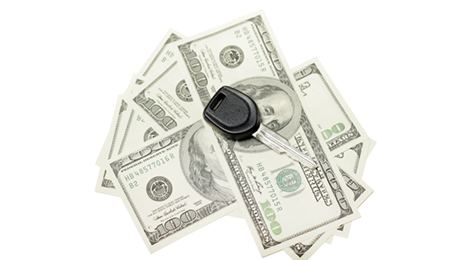TransUnion Study Reaffirms Auto Loan Payment Importance

By subscribing, you agree to receive communications from Auto Remarketing and our partners in accordance with our Privacy Policy. We may share your information with select partners and sponsors who may contact you about their products and services. You may unsubscribe at any time.
CHICAGO –
The latest update of an ongoing TransUnion study showed consumers continue to place an emphasis on paying their auto loans before their mortgages and credit card payments — and by a wide margin.
TransUnion contends this trend has been in place since at least 2003.
Ezra Becker, co-author of the study and vice president of research and consulting for TransUnion, told SubPrime Auto Finance News this week that trends showing the importance of vehicle installment contracts goes back even further. Becker and TransUnion’s analysts arrived at that assertion while examining some data from 2001.
“Even when home values were skyrocketing, even when unemployment levels were essentially at a point where we were at full employment, auto loans were still the first thing to get paid,” Becker said.
The study was completed using a series of monthly cohorts of anonymous consumer information from December 2002 through December 2012. Each cohort was composed of consumers who had at least one mortgage, auto loan and credit card open and in good standing as of the cohort definition month.
The credit performance of each consumer was evaluated 12 months later using a 30 days past due or worse definition of delinquency — thus the performance data span December 2003 through December 2013. Each monthly sample included approximately 2.5 million consumers.
Subscribe to Auto Remarketing to stay informed and stay ahead.
By subscribing, you agree to receive communications from Auto Remarketing and our partners in accordance with our Privacy Policy. We may share your information with select partners and sponsors who may contact you about their products and services. You may unsubscribe at any time.
As a result, TransUnion pegged the auto loan delinquency rate at 0.87 percent with the levels for mortgages (1.71 percent) and credit cards (1.83 percent) coming in twice as high.
Becker explained the reason TransUnion is organizing this ongoing study is “to see if consumers choose to go delinquent on one product over another. When they’re running out of money, what do they choose to pay and not pay?”
He continued: “What’s very interesting to us is conventional wisdom historically has been that if consumers pay one thing and only one thing, it’s going to be their mortgage. But that’s not the case.”
Becker then shared some theories as to why consumers often keep their vehicle financing current while letting mortgage or credit card commitments slide.
“When we try to explain it, it’s merely conjecture but it is easier to sell a car than it is to sell a house. You can list your car on Craigslist and get offers. You don’t have to worry about formal appraisals. You don’t have to worry about a formal closing. It’s a very different process as far as the negotiations for auto loans than it is on a house,” Becker said.
“We’re not saying that people value their cars more than their houses. We’re saying that they paid their auto loans more often than their mortgage notes,” he continued. “It could be that even if you can’t afford the auto loan, it’s easier for you to exit that loan and be whole than it is for you to exit the house and be whole.
“There’s also an element that people use their cars to do a lot, to get to work, to get their kids to school, to buy groceries, to do all sorts of things. Unless you’re in one of those limited parts of the country that have effective public transportation like metro Washington D.C. or downtown Chicago or New York, it is pretty tough to get around without a car. It’s certainly more inconvenient,” Becker went on to say.


